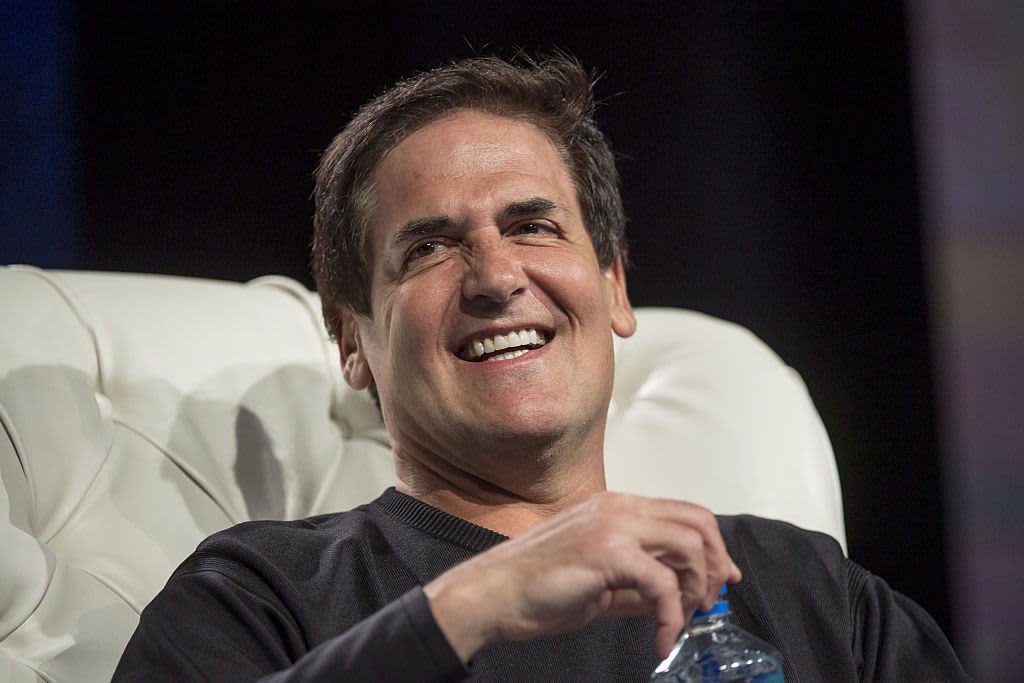Products You May Like
If Mark Cuban could solely invest in one personality trait, it would be confidence.
On Friday’s episode of ABC’s “Shark Tank,” the billionaire investor said he rejected one start-up founder’s pitch for that exact reason.
The founder, Liv Bowser, launched her Los Angeles-based mental health company Liberate in May 2020. The start-up offers instructor-led Zoom classes for both individuals and corporate partners on topics like journaling, conversation and meditation.
Bowser, who referred to Liberate as “the SoulCycle of mindfulness,” told the Sharks that her company had made $50,000 in lifetime sales by the time of the taping. Roughly 65% of that came from corporate clients, while the remainder was from individual subscriptions, ranging from $19 to $49 per month.
For Cuban, that sales figure was a red flag: A company with such a promising concept, he said, should be making significantly more money after a year-plus of business. He told Bowser that she needed more confidence to stop “underpricing” and get consumers to pay top-dollar for a valuable service.
“You’re on trend, you’re on need, you’re on value,” he said. “Sell at a premium, don’t sell out of desperation.”
Cuban was spot on. The global alternative medicine industry, which includes mediation, yoga and chiropractic services, is currently worth $100 billion — and could surpass $400 billion by 2028, according to a report from market research firm Grand View Research.
Fellow Shark Robert Herjavec noted that some large mindfulness companies charge their corporate clients upwards of $50,000 or even $100,000, surpassing Liberate’s entire amount of lifetime sales with one deal.
In contrast, Bowser noted, she’d recently closed a deal with a corporate partner for just $6,900. “Selling $5,000 deals is no easier than selling $50,000 to $100,000 deals,” Cuban told her.
The other Sharks also took issue with Liberate’s lack of sales, even as they praised the start-up’s mission.
“We all know the mind is the largest muscle on the body, and as soon as that thing expands, it never goes back,” Daymond John said. “But you haven’t figured it out yet.”
Ironically, the most confident part of Bowser’s pitch was also a sticking point: She wanted $200,000 for a 10% stake in her company, which would value Liberate at $2 million. The money would go toward hiring a sales manager to grow the company’s corporate client outreach, she said.
The Sharks cited that estimate as a dramatic overvaluation. “I love everything about what you’re doing,” said Herjavec. “But there are big companies doing similar stuff. Why aren’t you reaching their scale?”
“We’re just getting started,” Bowser said, arguing that the capital could help her grow to rival her competitors and, in turn, attract more lucrative corporate deals. But all five Sharks turned down her request without negotiating.
Despite the rejection, Bowser said she had no regrets.
“I think I could have valued [Liberate] lower to get a Shark on board,” she said. “But honestly, I think it’s going to be a billion-dollar company, so I’m happy I stuck to my guns.”
Sign up now: Get smarter about your money and career with our weekly newsletter
Don’t miss:
What Mark Cuban is most excited for in the crypto space next year
